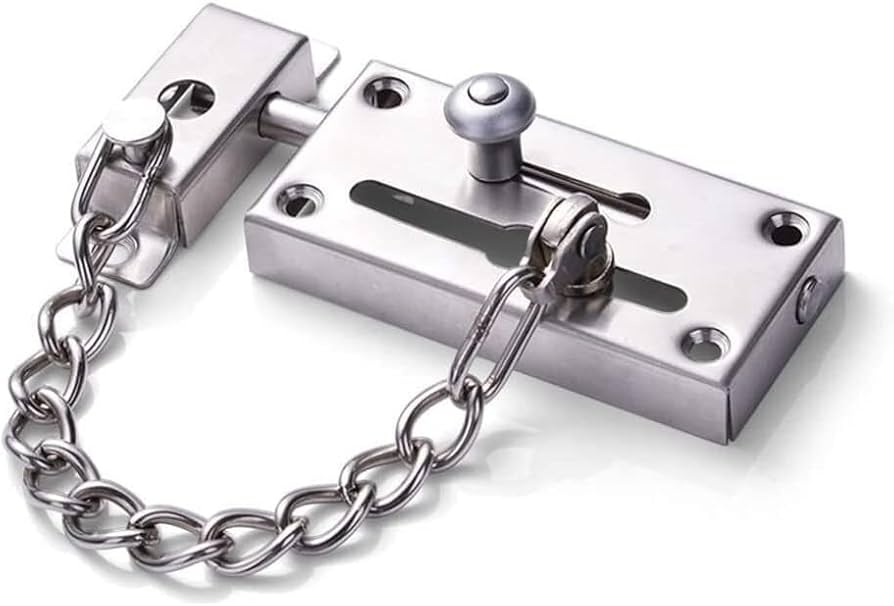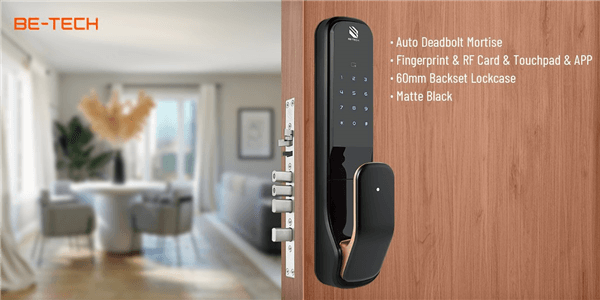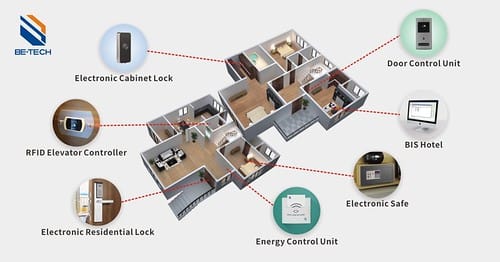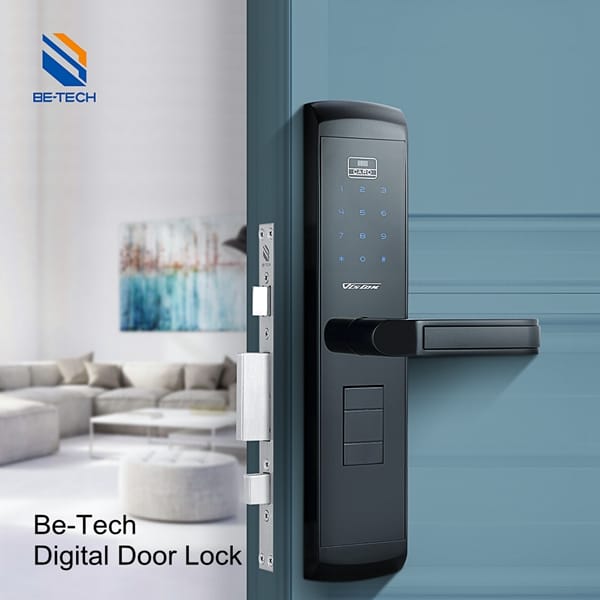Door latches are essential components of hotel security, providing the first line of defense against unauthorized access while also contributing to the aesthetic appeal of hotel interiors. Understanding the various types of door latches available—from standard to decorative options—can help hotel managers make informed decisions that enhance both security and guest experience. This comprehensive guide will explore the different types of door latches, their features, and how they can be integrated into hotel operations effectively.
Understanding Door Latches for Hotel Security
Door latches are vital components in securing hotel entrances, significantly impacting guest safety, accessibility, aesthetics, and durability. Choosing the right latch is essential not only for security but also for creating a welcoming atmosphere that enhances guest experience.
Key Considerations for Hotel Door Latches
Security Features
To ensure robust protection for guests and their belongings, hotel door latches must incorporate advanced security features:
- Automatic Locking Mechanisms: Automatically secure doors upon closing, minimizing unauthorized access risks.
- Tamper-Resistant Designs: These designs deter forced entry attempts and alert staff to potential tampering.
- Integration with Electronic Access Control Systems: Modern systems may include RFID or smart card technology, facilitating keyless entry while maintaining access logs.
Accessibility and Ease of Use
Designing latches with universal accessibility ensures all guests can operate them effortlessly:
- Lever-Style Handles: Preferred over knobs, these handles are easier to use, especially for individuals with limited grip strength.
- Clear Locking Indicators: Visual cues indicate whether a door is locked or unlocked, enhancing user experience.
- ADA Compliance: Hardware must be operable with one hand without tight grasping or twisting and installed at accessible heights.
Aesthetic Considerations
The visual appeal of door latches contributes to a hotel’s overall ambiance:
- Decorative Finishes: Choose finishes that complement the hotel’s aesthetic to enhance guest satisfaction.
- Modern vs. Classic Designs: Select sleek designs for contemporary properties or ornate styles for luxury hotels.
Durability and Maintenance
Given high traffic in hotels, durability is crucial:
- High-Quality Materials: Opt for materials that resist wear and corrosion to ensure longevity.
- Easy-to-Maintain Mechanisms: Simple designs allow for quick repairs and maintenance.
- Long-Term Reliability: Prioritizing durable options minimizes replacement costs over time.
Types of Door Latch Mechanisms
Understanding various latch mechanisms aids in selecting the most suitable option:
| Type | Description |
|---|---|
| Spring Latches | Utilize a spring mechanism; ideal for frequent access points. |
| Dead Latches/Deadbolts | Provide enhanced security; require manual operation via key or knob. |
| Electronic Locks | Include keypad locks and smart locks; offer keyless entry options integrated with management systems. |
Selecting the appropriate door latch involves balancing security features, accessibility, aesthetics, and durability. By addressing these considerations thoughtfully, hoteliers can create a secure environment that enhances guest satisfaction while meeting regulatory standards.
1. Standard Security Latches

Standard latches form the backbone of hotel room security systems. These include:
- Cylindrical Latches: Common in many hotels due to their reliability and ease of installation.
- Example: Be-Tech Guardian RFID Locking System, offering enhanced security with RFID technology.
- Mortise Latches: Preferred for exterior doors and high-security areas.
- Benefit: Superior durability and compatibility with decorative handles.
- Interconnected Latches: Combine lockset and latch for a streamlined look.
- Recommendation: Be-Tech Visual III RFID (V5 Series) for modern, tech-integrated security.
- Deadlocks: Provide an additional layer of security, crucial for hotel room doors.
- Learn more: “Deadlatch Locks: The Ideal Choice for Secure and Reliable Hotel Door Locking Systems”
2. Decorative Latches

Upscale hotels often utilize decorative latches to enhance aesthetics without compromising security:
- Rim Latches: Surface-mounted, ideal for period-style properties.
- Consider: Be-Tech Shadow II RFID Lock for a blend of style and modern security.
- Magnetic and Electromagnetic Latches: Sleek, minimalist options for contemporary hotel designs.
- Explore: Be-Tech Electronic Hotel Lock – Base RFID for cutting-edge magnetic latch technology.
Importance in Hotel Operations
Selecting the right door latch system is critical for:
- Ensuring guest safety and privacy
- Maintaining the hotel’s aesthetic appeal
- Integrating with modern hotel management systems
For more insights on hotel security technologies, refer to our article “10 Must-Have Hotel Security Technologies for 2024.”
Key Considerations for Selecting Hotel Door Latches
When choosing door latches for your hotel, several factors should be considered to ensure they meet your specific needs and enhance guest experience. Here are the crucial aspects to keep in mind:
Security Features
Prioritize latches that provide adequate locking strength and resist tampering. For external doors, consider high-security options such as mortise latches (which fit into a pocket cut into the door’s edge) or deadbolts (separate locks that provide additional security). For instance, a Grade 1 ANSI/BHMA certified mortise lock offers the highest level of security for main entrance doors.
Accessibility and Ease of Use
Ensure that latches are easy to operate for guests of all ages and abilities. Lever handles and push-button latches are often preferred over traditional knobs, as they’re more user-friendly and comply with ADA requirements. For example, electronic keycard systems with lever handles combine security with ease of use, ideal for guest room doors.
Durability and Longevity
Select latches made from high-quality materials that can withstand frequent use in a hotel environment. Stainless steel and brass are excellent choices for their durability and resistance to wear. For high-traffic areas like main entrances or conference rooms, consider heavy-duty commercial-grade latches designed for intensive use.
Aesthetic Appeal
Choose latches that complement the overall design scheme of your hotel. Decorative latches can enhance the ambiance and perceived value of your property. For luxury hotels, consider custom-designed handles or antique-style latches that align with the hotel’s unique character.
Compatibility and Installation
Verify that the latch is compatible with your existing door hardware and can be properly installed on your door type and size. For example, ensure the backset (the distance from the edge of the door to the center of the handle) matches your door’s specifications. Also, consider standardizing latch types across similar areas of the hotel for easier maintenance and key management.
By carefully considering these factors, you can select door latches that not only provide necessary security but also contribute to the overall guest experience and operational efficiency of your hotel.
Integrating Door Latches into Hotel Operations
Effectively integrating door latches into your hotel’s operations is crucial for ensuring guest safety and operational efficiency. Here’s how to seamlessly incorporate these essential security features:
1. Comprehensive Staff Training
Equip your team with in-depth knowledge of various latch systems, from traditional mechanical locks to advanced electronic access control systems. Conduct hands-on training sessions covering:
- Operation of different latch types (e.g., RFID, biometric, keycard)
- Troubleshooting common issues (e.g., dead batteries, misaligned sensors)
- Routine maintenance procedures (e.g., cleaning card readers, updating software)
2. Proactive Maintenance Schedule
Implement a rigorous maintenance program to ensure optimal performance of all door latches:
- Weekly: Inspect and clean exterior components of electronic locks
- Monthly: Lubricate moving parts and check battery levels
- Quarterly: Conduct thorough system diagnostics and firmware updates
3. Enhanced Guest Education
Provide clear, multi-channel instructions on latch operation to improve guest experience:
- In-room guides with visual aids for keyless entry systems
- Video tutorials on the hotel’s mobile app or in-room entertainment system
- QR codes on room doors linking to online help resources
4. Robust Emergency Protocols
Develop comprehensive emergency access procedures:
- Maintain a secure master key system with strict access controls
- Implement redundant override mechanisms (e.g., mechanical key backup for electronic systems)
- Conduct regular drills to ensure staff can quickly assist guests during emergencies
By following these strategies, hotels can maximize the benefits of their door latch systems, enhancing security, improving operational efficiency, and elevating the guest experience.
Conclusion
Understanding the different types of door latches available for hotels is crucial for enhancing security and guest experience. By selecting the right latches—whether standard or decorative—hotel managers can ensure that their properties are secure, accessible, and aesthetically pleasing.
Investing in high-quality door latches not only protects guests and their belongings but also contributes to the overall ambiance of the hotel. With the right strategies in place for integration and maintenance, hotels can create a safe and welcoming environment that guests will appreciate.
For more information on advanced security solutions for hotels, explore our article on Ultimate Guide to Advanced Hotel Door Lock Systems 2024.
By carefully considering the various factors involved in choosing door latches, hotel managers can make informed decisions that enhance both security and guest satisfaction.








